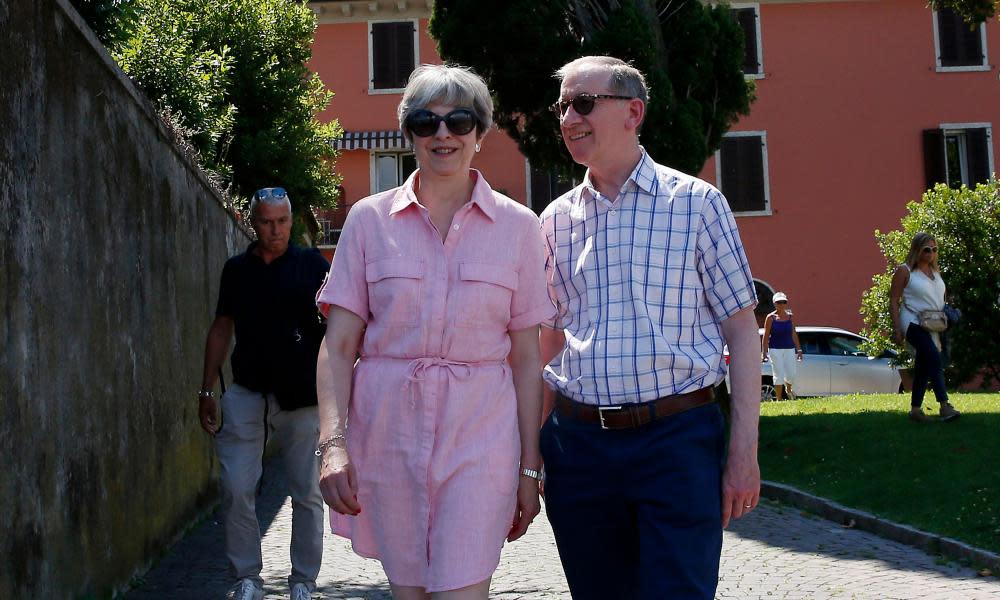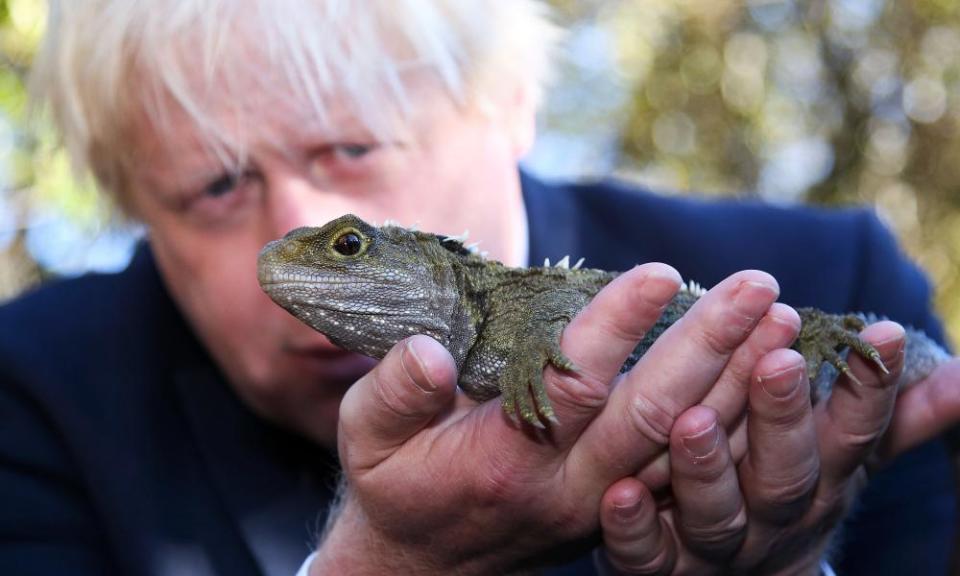May's absence keenly felt as Tory headless chickens rule the roost | John Crace

Monday
I can only imagine that William Higham, a futurologist who has co-authored a report for Amazon that suggests owners will be able to communicate with their dogs within 10 years, isn’t a dog owner himself. One of the main joys of having a dog is that they are the only living thing guaranteed to be pleased to see you at any given moment. It is a constant source of joy to me that Herbert Hound reacts to my waking up in the morning or my coming home from work in the evening as if they were genuinely the most exciting events that have ever happened to him. What I don’t want from him is a lecture, which I fear I would get were we able to converse in a common language. After he has got over the thrill of me opening my eyes, I don’t want to be told how my snoring has kept him awake all night. Similarly, after he has finished wagging his tail, I don’t want to hear what a boring afternoon he has had and how he feels badly let down that I am home 13 minutes later than promised. And I certainly don’t want him telling my wife that I let him sit on the sofa when she’s out.
Tuesday
Absence makes the heart grow fonder. The photos of Theresa May going for a walk near Lake Garda in Italy made me realise why the Tory party appears to be in no hurry to remove her as prime minister. There really aren’t any obviously suitable replacements. Though Theresa probably chose not to name which member of the cabinet was in charge of the country while she was off on hols in order not to give anyone ideas, she might also have done so in order not to alarm the rest of us. Because the thought of anyone else being in charge is even more terrifying. I am struggling to think of one member of the cabinet I would want running my local newsagent, let alone the country. Theresa has only been away from Downing Street for a few days and already Liam Fox and Michael Gove have fallen out over chlorinated chickens. Headless or otherwise. Thank goodness Boris has been sent on a global tour for the next three weeks so he can’t do much damage. To us, at least. On the face of it, Amber Rudd appears to be the only grownup left. Until you realise it has only just now occurred to her to do an impact assessment of EU nationals’ migration into the UK post-Brexit.
Wednesday
Prof John Sutherland is publishing a book on Dracula this autumn for which I was this week asked to write a digested read as an appendix. Having never previously read Bram Stoker’s Victorian gothic classic, I was taken aback at how confusing all this vampire stuff is. I’m still not entirely clear how many bites it takes someone to become a vampire. Lucy Westenra gets bitten several times and never recovers despite several blood transfusions, while Mina Harker survives without any transfusions despite being forced to drink large amounts of Dracula’s blood. Likewise Van Helsing is adamant that though Mina is OK while she is alive, she will definitely become an undead when she dies, and yet he is completely confident that all the children that Lucy has been biting while she is undead pose no threat to anyone when they are dead or undead. Finally, when Lucy gets a stake through the heart, her body resumes the demeanour of an innocent 19-year-old woman, while poor old Dracula dissolves into dust. Any answers more than gratefully received.
Thursday
Going to see an opera that is rarely staged can be a bit of a hit and miss experience. While every opera company likes to mix up the old favourites with the unfamiliar, there is often a very good reason why some operas have been left to gather dust. One such was Cavalli’s Hipermestra, which I saw at Glyndebourne earlier this summer. The first act had few memorable moments and seemed to go on forever; the opera could quite easily have been cut by 45 minutes to everyone’s benefit. But tonight I went to Opera Holland Park to see Leoncavallo’s Zazà and was left wondering how it was that only the composer’s I Pagliacci has remained part of the standard repertoire. Zazà was a huge critical success when it was premiered in 1900 and went on to be performed around the world over the course of the next 20 years. But then it just seemed to fade away. Not for much longer, I suspect. It helped that Anne Sophie Duprels was mesmerising in the title role, but the action and the music – particularly in the second half – came together perfectly. Even the weather joined in. At a particularly intense moment of betrayal, torrential rain beat down on the tent, drowning out a 100-piece orchestra. Oddly, it added to the performance.
Friday
A study by Martin Llewelyn, a professor of infectious diseases at Sussex University, in the British Medical Journal has suggested that the standard advice from doctors to keep taking antibiotics until the course has been completed is wrong. Rather, patients are better off stopping taking their medication when they feel better. This may or may not be good advice for normal people, but I fear it may fall on deaf ears for those, like me, who suffer from acute hypochondria. For one thing, I’m not sure I would ever be able to categorise myself as sufficiently well – even when there was nothing actually wrong with me – to stop taking a course of antibiotics. And even if, by some off-chance, I did feel a little bit better I would be constantly anxious that my symptoms would return.

Digested week: “I am straightly, straightly not answering your question.”

 Yahoo News
Yahoo News 
